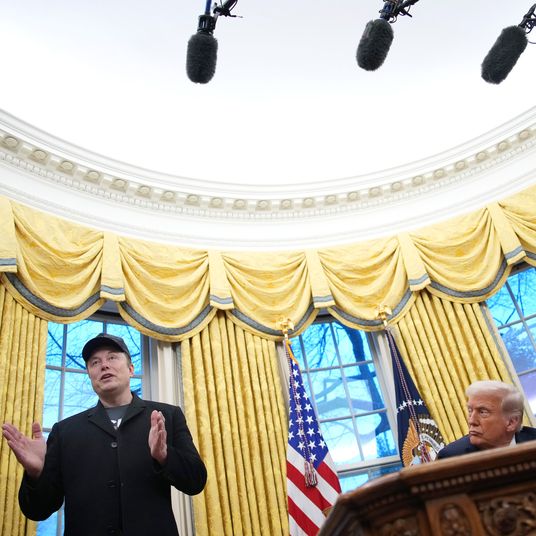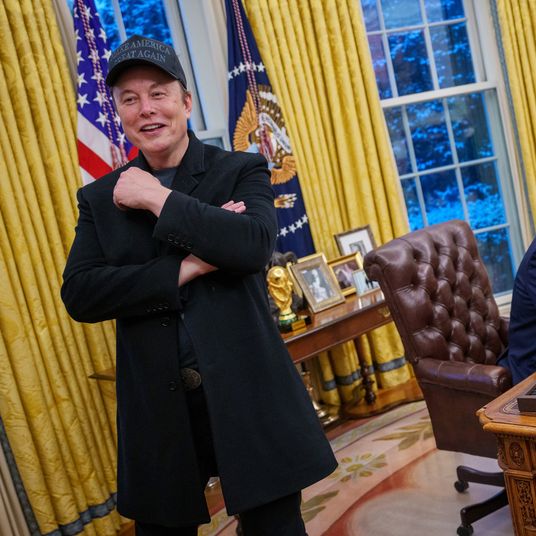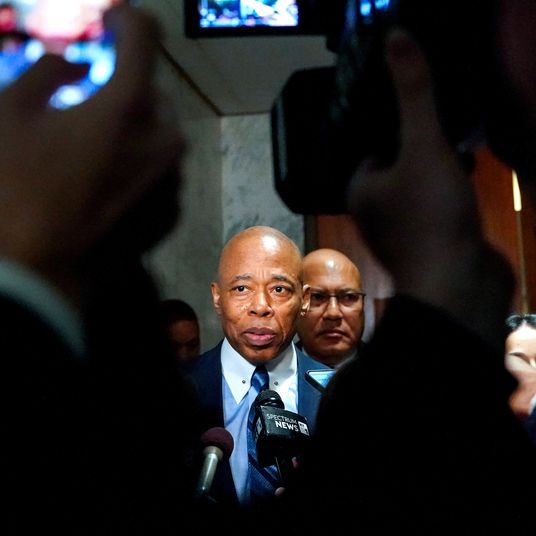
The comedian Mike Birbiglia once compared being a new father to being the vice-president of a family: “Huge title. No power. Also oversees Congress.” Whether or not that’s true of every family dynamic, it is certainly accurate about the realities of being vice-president of the United States — a largely ceremonial, often thankless role, except for when it comes time to cast a tie-breaking vote in the Senate. J.D. Vance has already done that once in his first few weeks as vice-president (to confirm the totally qualified and not-at-all erratic Pete Hegseth as secretary of Defense), but otherwise, his veep tenure has largely been characterized by a whole lot of posts to X, ranging from dubious claims about the limits of the judicial branch’s power to intellectual inquiries into the physics of a large dog having sex with a small dog. That’s right, folks, we finally have a vice-president with a severe case of poster’s disease.
In the last week alone, Vance seems to have made great headway in advancing his and his boss’s agenda via posts. On February 7, for instance, he plunged into the culture-war trenches, eager to do battle on behalf of Marko Elez, a 25-year-old software engineer who resigned from DOGE after The Wall Street Journal unearthed posts from as recently as September in which he advocated for racism and eugenics. “I obviously disagree with some of Elez’s posts,” Vance wrote, declining to note which ones, exactly, or why, “but I don’t think stupid social media activity should ruin a kid’s life.” Whether the weight of Vance’s mighty thumb tilted the scales or not, DOGE head Elon Musk announced shortly after that he intends to rehire Elez.
More alarmingly, Vance has used his X account to go after the judicial branch, as one Trump executive order after another continues to get blocked by the courts. Deftly employing one analogy after the next, Vance wrote that a judge telling a general how to conduct a military operation would be illegal, as would a judge telling an attorney general how to use their discretion as a prosecutor. So it follows, Vance contends, that judges can’t control the executive branch’s “legitimate power.” As constitutional scholars have noted, the question of what comprises “legitimate” executive power is decided by — guess who — the courts. “The answer to that question is 100% settled and has been for 222 years,” writes the Brennan Center for Justice’s Elizabeth Goitein, “when the Supreme Court famously recognized that ‘it is emphatically the province and duty of the judicial department to say what the law is.’”
If Vance needs a clearer explanation, he might try signing off of X for a bit to take a trip back to Schoolhouse Rock. He seems to have the time.






























